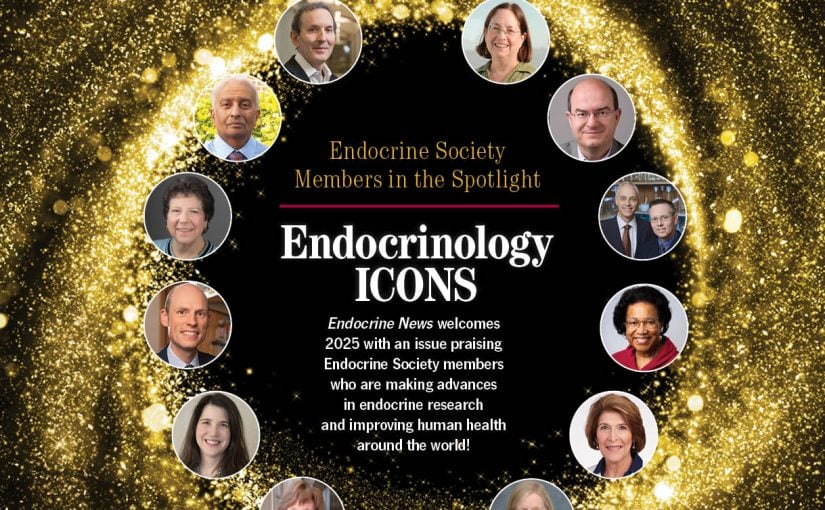Dr. Steven Anderson, professor of pathology and vice chair for research in the Department of Pathology at the University of Colorado Anschutz Medical Campus, is a long-standing member of The Endocrine Society who has been actively involved in mentoring minority students and fellows with an interest in biomedical research. He currently serves as a member of the Advocacy and Public Outreach Core Committee (APOCC) and as principal investigator of the Society’s Minority Access Program (MAP). Prior to joining APOCC, he served on the Minority Affairs Committee for six years and the Training Development Committee for two years. He has participated in career development events such as the Endocrine Trainee Day and the Minority Mentoring and Poster Reception at the Society’s annual meeting. Dr. Anderson talked with Endocrine News about his experiences as a mentor.
Q: How did you get started in The Endocrine Society and what advice do you have for young people wanting to get involved?
A: I joined the Society about 15 years after moving to Colorado in 1993. There are many active members of the Society in Denver who encourage you to join and become active.Getting involved in the activities allows you to meet people and extend your network of colleagues. Most importantly, you make the Society yours instead of it being a group that is run by others in which you have no part.
Q: What areas do you specialize in and what initiated your interest in these areas?
A: My lab is interested in mammary gland development and tumorigenesis. I was trained as a cancer biologist and over time became interested in both normal and abnormal mammary gland development because they represent opposite sides of the same coin.
Q: What is an average day like in your life?
A: I review my schedule and priorities for the day before leaving the house. Answering e-mails then is the next priority, especially if they involve actions that have to be coordinated with others. Meetings usually start about 9 each day. In addition to my weekly lab meeting, I have weekly meetings with my trainees and collaborators on important projects, papers, and grants. I have an open-door policy so there are frequent interruptions. I close the door when I need to write in a focused manner. Ideally I go to the gym around 6:30 a.m. in order to get some regular exercise, although some days the evening is the only alternative.
Q: What is your most effective time-management skill?
A: I strictly adhere to a schedule of weekly meetings and hold myself and others accountable to make the best use of this time. Meetings can be shortened, but I do not cancel them unless I am travelling. Rapid follow-up on these meetings keeps me from forgetting important tasks that need to be accomplished. The second most import timemanagement skill is to delegate. Asking for help is a critical survival skill.
Q: What have been some of the most rewarding or challenging moments of your career?
A: Transitions from industry to academics or to a new institution are both the most challenging and rewarding. With each transition comes new expectations. The challenge of rejection—whether a grant or a paper—is clearly difficult, and yet finally succeeding in getting that grant funded is very rewarding.
Q: What is the riskiest career move you’ve ever made?
A: My postdoctoral advisor moved to a pharmaceutical company during my first year in his lab, and I chose to go with him. Ultimately I chose to leave that company after four years and go to an academic institution. It was big jump to make without an active research program that I could move with me, and it meant starting everything from scratch. Grants were hard to get at that time, and I was fortunate to get my first NIH grant on its first submission. It was risky because I was not well prepared to run my own lab and everything required hard work on my behalf. There were supportive faculty members who helped me with the transition and provided important advice to me in the first few years.
Q: What do you consider the most important aspect of the mentor and trainee relationship?
A: Good mentors should challenge their trainees to be their best and to excel in their profession. Good communication is essential, as is a common set of goals for success. Trainees should communicate in an open and honest manner about what they want. Frustrations in the lab or with one’s career path are easier to address when there is open line of communication. This also requires being honest with one’s self and open to criticism and change.
Q: Any other advice for trainees?
A: The Society offers a terrific forum for expanding your network of colleagues and friends. At every ENDO meeting I look forward to renewing friendships, exploring new collaborations, and meeting new people. Despite the huge increase in electronic means to communicate, I am still a firm believer in face-to-face contact as the best and most meaningful way to meet people.

